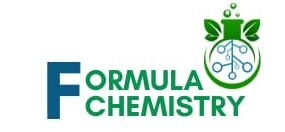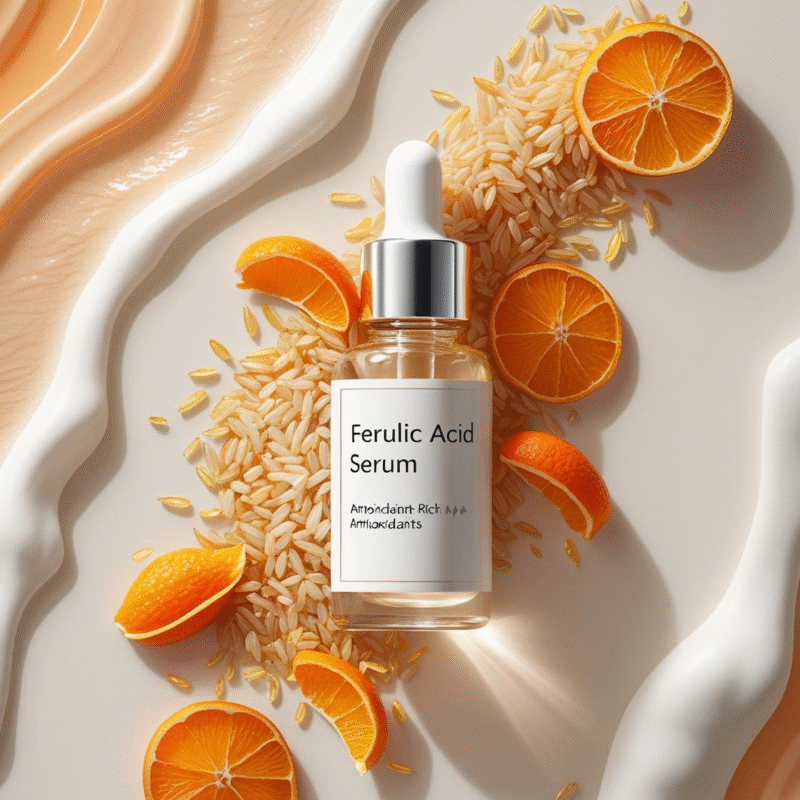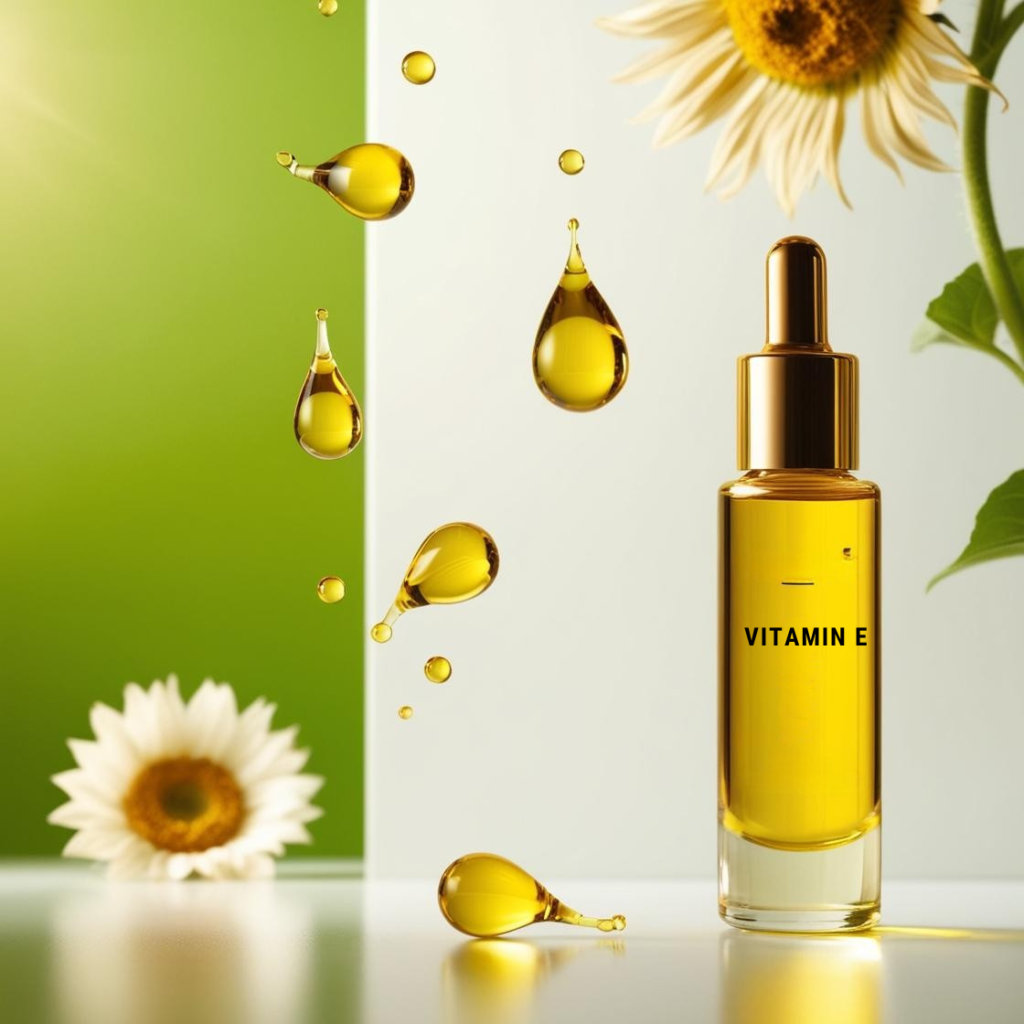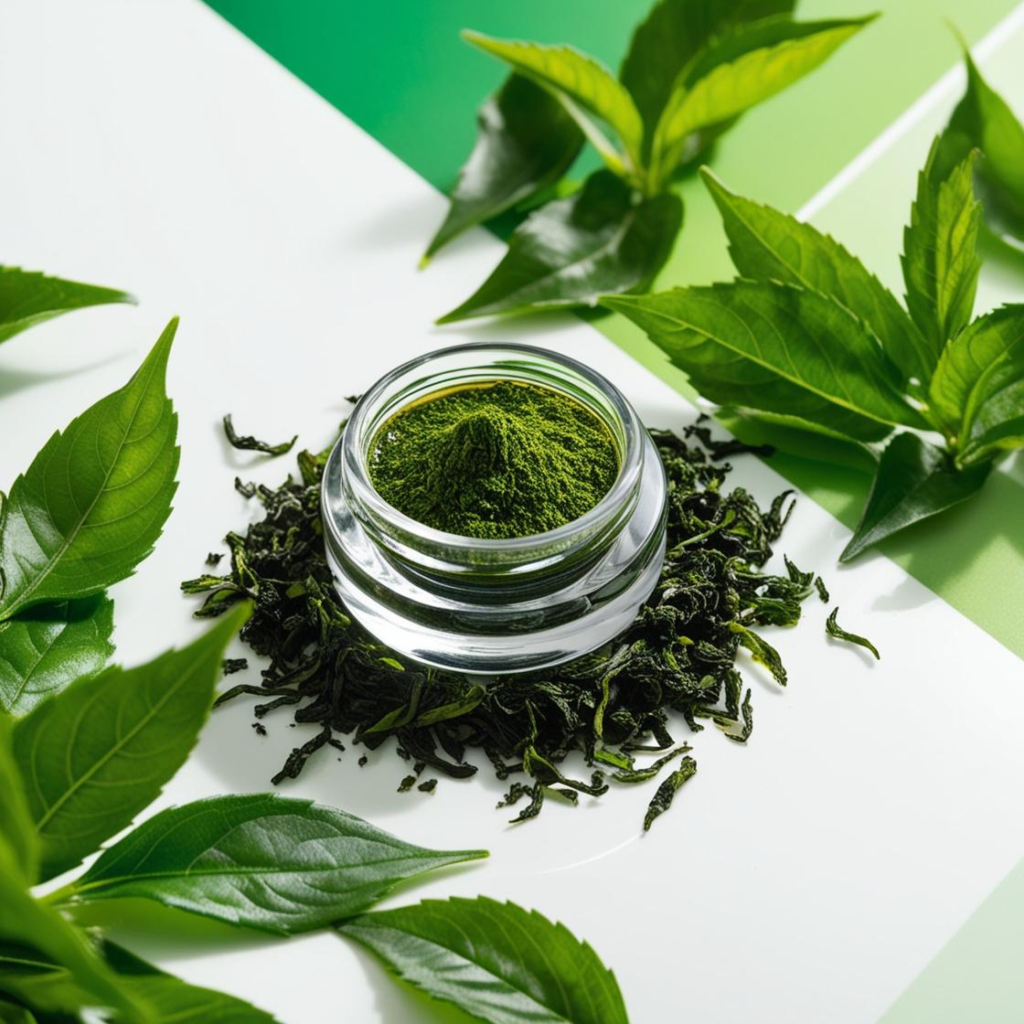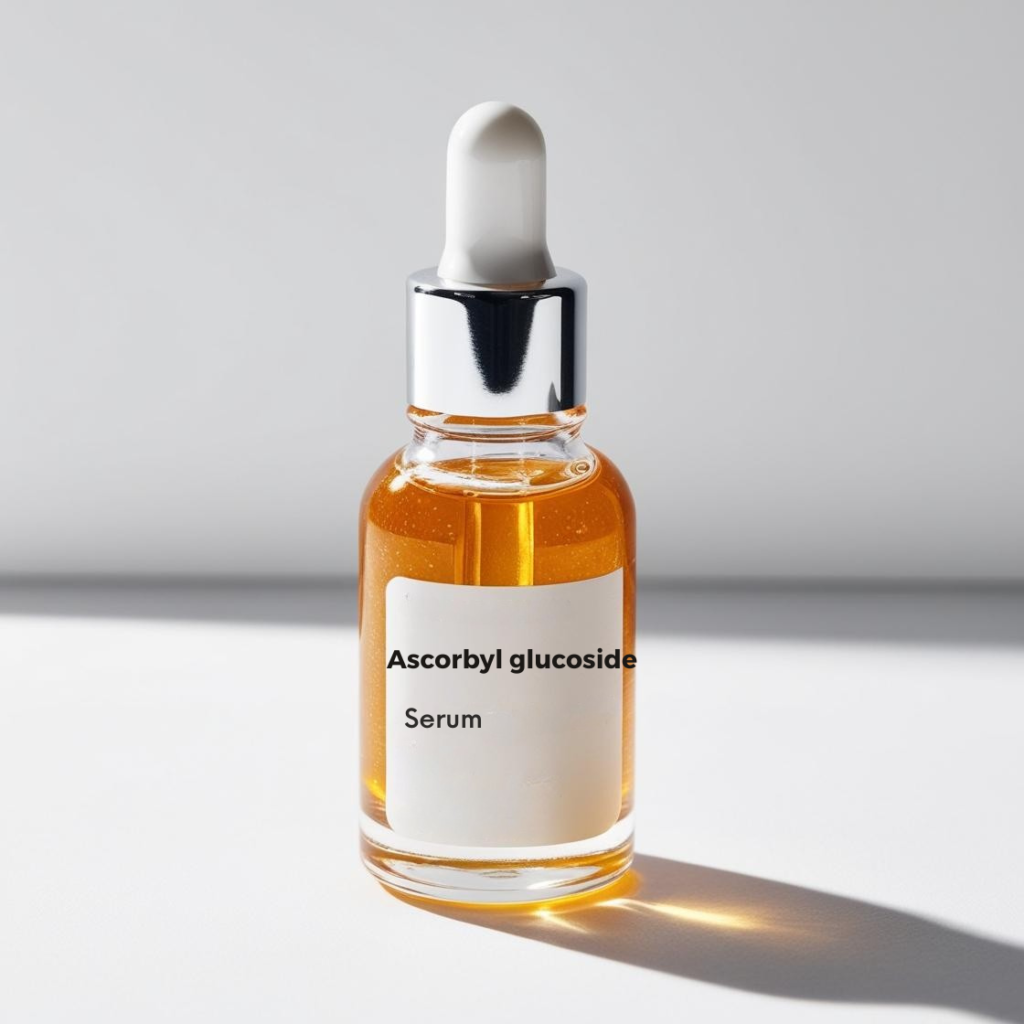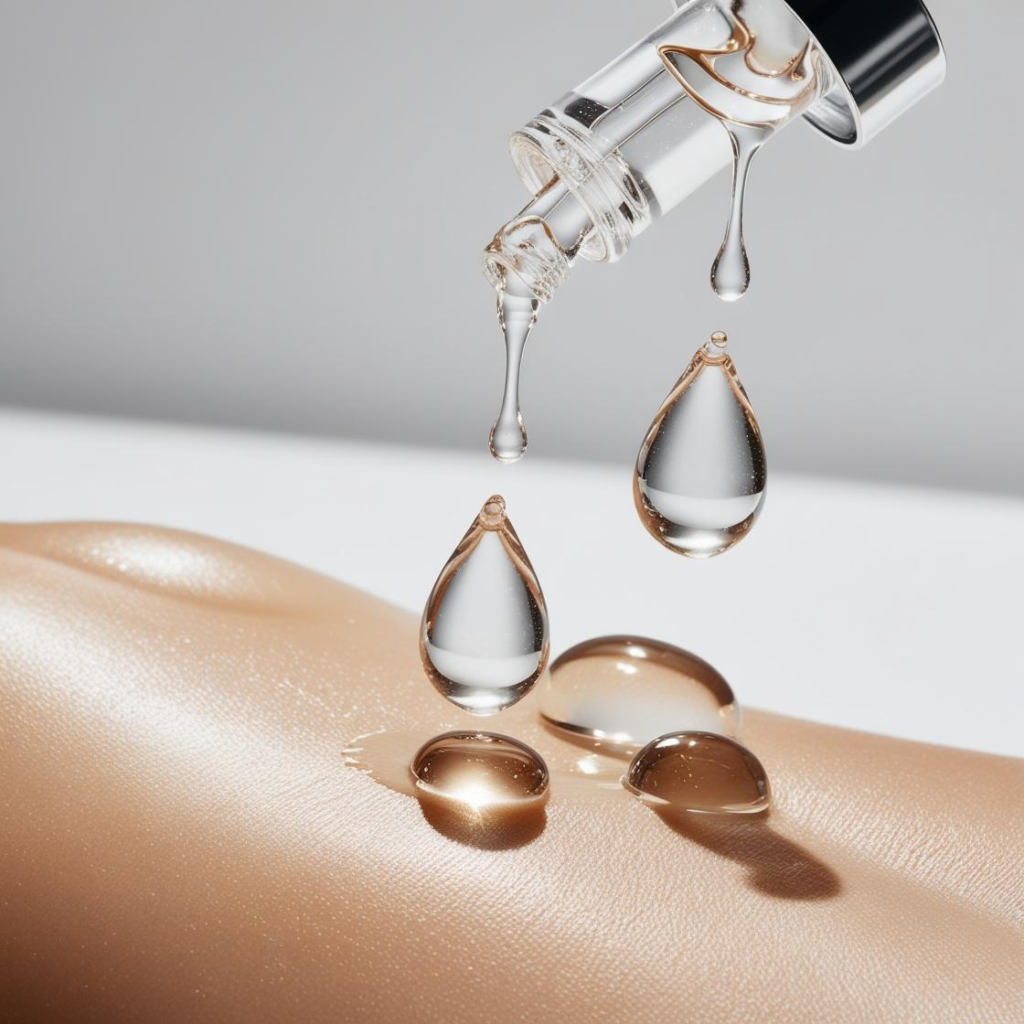CAS number 303-98-0
INCI name Ubiquinone
Ubiquinone (Coenzyme Q10) is a natural compound essential for cellular energy and antioxidant protection. In cosmetics, it helps reduce wrinkles, improve firmness, and enhance skin texture. Found in serums, creams, and lotions, it appears as a yellow-orange crystalline powder with the formula C59H90O4.
Purpose
Ubiquinone (Coenzyme Q10) acts as a powerful antioxidant, shielding the skin from oxidative stress and free radical damage to prevent premature aging. It also serves as a skin-conditioning agent, improving firmness, smoothing texture, and reducing fine lines and wrinkles for a healthier, more youthful appearance.
Origin
Ubiquinone is mainly produced through fermentation, utilizing specific microorganisms like yeast and bacteria to convert precursors into the final compound. This biotechnological method enables large-scale ubiquinone production for cosmetic applications.

| Feature | Description |
| Name | Coenzyme Q10 Powder |
| Type | Fat-soluble antioxidant |
| Source | Naturally found in the human body, |
| PH | Neutral |
| Odor | Odorless or slightly characteristic |
| Color | Yellow to orange |
| Solubility | Insoluble in water |
| Concentration | 10% to 98% |
| Physical state | Fine crystalline powder |
| Boiling point | 869°C |
Dual Functionality – Energy Production & Antioxidant Protection
Ubiquinone (Coenzyme Q10) plays a critical dual role in the body. It is an essential component of the electron transport chain in mitochondria, where it helps generate adenosine triphosphate (ATP), the primary energy currency of cells. At the same time, it functions as a powerful antioxidant, neutralizing harmful free radicals that contribute to cellular damage and premature aging. This combination makes it indispensable for maintaining youthful skin, supporting organ function, and enhancing overall health.
Lipid-Soluble Nature & Membrane Stability
Being a fat-soluble compound, ubiquinone integrates easily into lipid-rich cell membranes, particularly in high-energy-demand organs like the heart, liver, and skin. In cosmetic formulations, this property enables it to penetrate deeper skin layers, strengthening cell structures and improving barrier function. Additionally, its lipid solubility ensures compatibility with oil-based skincare and dietary supplements.
Mitochondrial Support & Cellular Longevity
CoQ10 is predominantly found in mitochondria, the powerhouse of cells, where it facilitates efficient energy production. It not only fuels cellular activities but also protects mitochondria from oxidative stress, which can lead to cellular aging and dysfunction. Its role in preserving mitochondrial health makes it beneficial in anti-aging skincare and longevity research.
Anti-Aging & Skin Rejuvenation
As a key ingredient in cosmetics, ubiquinone is widely used for its anti-aging benefits. It helps minimize fine lines and wrinkles by supporting collagen synthesis, improving skin elasticity, and reducing oxidative damage caused by environmental factors. Studies have shown that topical application of CoQ10 can visibly improve skin texture, hydration, and firmness.
Natural Decline with Age & the Need for Supplementation
The human body naturally synthesizes CoQ10, but its levels peak in early adulthood and progressively decline with age. This reduction leads to decreased cellular energy, slower skin regeneration, and increased vulnerability to oxidative damage. To counteract this, CoQ10 supplementation—both oral and topical—is often recommended for maintaining youthful skin and overall vitality.
Distinctive Yellow-Orange Appearance & Stability Challenges
Ubiquinone naturally exists as a bright yellow-orange crystalline powder, which is a key characteristic in cosmetic and pharmaceutical formulations. However, it is highly sensitive to environmental factors such as light, heat, and oxygen, which can degrade its potency. To preserve its effectiveness, advanced stabilization techniques like encapsulation, liposomal delivery, and air-tight packaging are used in product formulations.
Poor Water Solubility & Advanced Delivery Systems
CoQ10 is hydrophobic and poorly soluble in water, which presents challenges in formulation. To enhance its absorption and bioavailability, modern skincare and supplement industries use delivery systems such as nanoemulsions for deeper skin penetration, liposomal encapsulation to protect the active ingredient, micellar solutions for water-based formulations, and oil-based carriers to improve solubility and stability.
Interconvertible Forms – Ubiquinone & Ubiquinol
CoQ10 exists in two active forms: ubiquinone (oxidized) and ubiquinol (reduced). While both forms play essential roles, ubiquinol has superior antioxidant properties and is more bioavailable. However, the body can naturally convert between these two forms based on cellular needs, making both valuable for supplementation and skincare.
Microbial Fermentation – Sustainable & High-Purity Production
Modern CoQ10 production relies on microbial fermentation, using yeast and specific bacterial strains to biosynthesize high-purity ubiquinone. This biotechnological approach ensures sustainable, non-animal-derived production, high bioavailability and purity for cosmetic and pharmaceutical applications, and scalability for mass production without compromising quality.
Role in UV Protection & Environmental Defense
CoQ10 helps shield the skin from UV-induced oxidative stress, which accelerates aging and leads to collagen degradation. It reduces the formation of free radicals triggered by sun exposure, preventing damage to DNA, proteins, and lipids in skin cells. This makes it an essential ingredient in sunscreens and anti-pollution skincare products.
Potential Cardiovascular & Neurological Benefits
Beyond skincare, ubiquinone is extensively used for its cardiovascular and neurological benefits. It helps improve heart function by supporting cellular energy production in cardiac muscles, reducing oxidative stress, and promoting healthy circulation. Additionally, its neuroprotective properties help protect brain cells from oxidative damage, potentially lowering the risk of neurodegenerative disorders such as Alzheimer’s and Parkinson’s.
Wound Healing & Skin Repair Properties
Research suggests that CoQ10 may accelerate wound healing and support skin regeneration by promoting cell turnover and reducing inflammation. This makes it beneficial in post-procedure skincare, including treatments for scars, burns, and sun damage.
Applications of Ubiquinone (Coenzyme Q10)
1. Skincare & Cosmetics
- Anti-Aging Creams & Serums: Reduces wrinkles, fine lines, and signs of aging by boosting collagen production and fighting oxidative stress.
- Moisturizers & Lotions: Enhances skin hydration, firmness, and elasticity.
- Sunscreens & UV Protection Products: Shields skin from UV-induced oxidative damage and environmental pollutants.
- Brightening & Even-Tone Formulas: Reduces hyperpigmentation and improves skin radiance.
- Wound Healing & Scar Treatment: Speeds up skin repair and reduces inflammation.
- Sensitive Skin Products: Calms irritation and soothes redness, making it suitable for rosacea and acne-prone skin.
2. Hair Care
- Anti-Hair Loss Treatments: Supports scalp health by improving circulation and energizing hair follicles.
- Shampoos & Conditioners: Strengthens hair structure and protects against oxidative damage.
- Hair Serums & Scalp Treatments: Nourishes the scalp and prevents premature graying.
3. Dietary Supplements & Functional Foods
- Anti-Aging & Wellness Supplements: Supports mitochondrial function, reduces fatigue, and enhances overall vitality.
- Heart Health Formulations: Improves cardiovascular health by optimizing cellular energy production in heart muscles.
- Brain Health & Cognitive Support: Protects neurons from oxidative damage and may help reduce the risk of neurodegenerative diseases.
- Sports Nutrition & Energy Boosters: Increases stamina, muscle recovery, and athletic performance.
- Immune System Support: Enhances immune response by reducing oxidative stress in immune cells.
4. Pharmaceuticals & Medical Applications
- Cardiovascular Health Treatments: Used in managing conditions like heart failure, hypertension, and statin-induced muscle pain.
- Neurological Support: May aid in preventing and managing Parkinson’s, Alzheimer’s, and other neurodegenerative diseases.
- Diabetes Management: Supports metabolic health and reduces oxidative stress-related complications.
- Mitochondrial Disorders: Helps improve energy production in individuals with mitochondrial dysfunction.
5. Personal Care & Wellness
- Oral Care Products: Incorporated into toothpaste and mouthwashes for gum health and antioxidant protection.
- Anti-Fatigue & Stress Relief Products: Used in formulations targeting chronic fatigue and stress-induced cellular damage.
